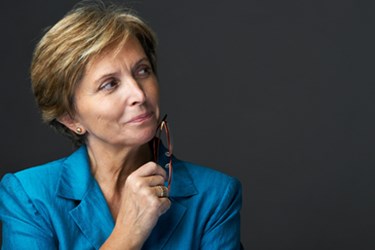Poll Expected Sanofi CEO To Be Male: What's Up With That?
By Anna Rose Welch, Editorial & Community Director, Advancing RNA

I’m interested in the topic of gender in any industry, and this week, a headline in BioSpace caught my eye: “Poll Finds Massive Support for French, Male CEO at Sanofi.” According to this survey, 86 percent of responders (353 people) believed the new CEO would be male. Turns out, these responders were right: Soon-to-be-former Bayer CEO, Olivier Brandicourt, will be taking over as Sanofi CEO on April 2.
However it’s results such as these from the BioSpace poll that make me stumble back into a classic, hard-to-answer question: What is it about the terms “Big Pharma” and “CEO” that lead to expectations of a male leader?
In the weeks following Viehbacher’s sacking at the end of October, a lot of news stories highlighted the company’s reasoning, including some reports that suggested he just wasn’t French enough. (He is a German-Canadian and was the company’s first non-French CEO.) If that’s the case, it makes sense that 70 percent of BioSpace poll responders were “confident” the new choice would be French. (Brandicourt is in fact, a Frenchman who spent his early adult life in France, says Reuters.)
However, for a company embracing its French roots and seeking to push forward with its international expansion, I think appointing a female leader could’ve been an interesting call back to French history (i.e. Joan of Arc), not to mention it could’ve made a statement about the company and the role of women within it that Sanofi has been trying to promote lately. Take the company’s efforts in India, for example. In November, LiveMint reported that Sanofi was working to introduce more female employees to managerial positions and other large corporate roles.
It’s not like BioSpace didn’t peg any potential female candidates for Sanofi’s CEO position in its survey, which asked who respondents expected to step up to the plate. Sanofi’s own Karen Linehan was included in the list options.
Linehan, Sanofi’s EVP, legal affairs and general counsel, and a member of the executive committee and global leadership team, was named one of the top 15 women in pharma several years ago. However, only 20 percent of the BioSpace responders expected her to be the chosen one, coming in behind Novartis’ Eric Cornut (35 percent) and Bayer’s Olivier Brandicourt (45 percent).
I am only one of many voices wondering why a majority of CEOs are male. Some progress has been made. In a survey by Catalyst, 4.6 percent of Fortune 500 and Fortune 1000 companies are headed by women. There are currently 23 female executives, an obvious improvement from 1995, when there were no female CEOs in Fortune 500 companies, says The Wall Street Journal. But this number is still low — and for pharma, it’s a tiny tally.
The name that came up the most frequently in my search was Mylan’s CEO Heather Bresch, who was appointed back in 2011. Deidre Connelly, president, North American Pharmaceuticals GSK, also made CEO World Magazine’s very short list of the two most powerful and influential women in pharma and biotech for 2014.
Another woman I’ve mentioned before in several other blogs is Martine Rothblatt, the CEO of United Therapeutics in Maryland. In fact, Rothblatt earned $38 million in 2013, ranking high on The New York Times/Equilar pay survey for 2013. Under her leadership, the company was put on the radar following the recent FDA approval of an oral version of Remodulin (treprostinil), known as Orenitram for primary pulmonary hypertension.
In a Forbes article written a few years ago by DeeDee Deman, CEO of Bench International, she chalked pharma’s “cement ceiling” up to the fact that “there’s a flaw in the mechanism that moves women through pharma’s talent development pipeline – which may explain the shortage of female managers who can go head to head with male candidates.”
It could be that history and the small number of female CEOs in pharma have made me somewhat biased, but I did expect we’d see a male candidate ascend into the CEO rank at Sanofi in the upcoming days or weeks. (All the recent headlines touting Brandicourt’s name as a front-runner might’ve also given me a hint.) For all its talk of innovation and taking risks, the pharma industry does embrace tradition, and Sanofi, with its history of almost always choosing a French CEO, seems to be no exception here.
I suppose I can be happy to see that BioSpace included a woman in their list of potential CEOs. But including a woman in a list of potential candidates can really only carry pharma so far. (We saw the same thing back when J&J was looking for a new CEO: current Avon CEO, Sheri McCoy, was in the running but was eventually beat out by Alex Gorsky.) Mylan took “the plunge” in 2011. I think it’s high time Big Pharma followed suit.
